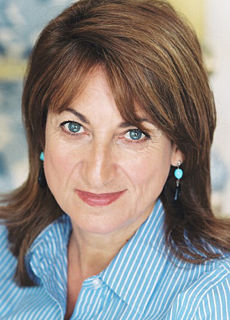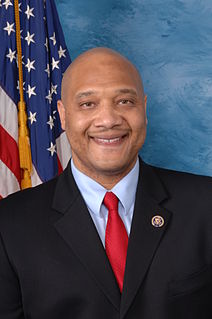A Quote by Rand Paul
I think we need to get to the bottom of it. And I think there should be an investigation [of hackers attacks] because in order to defend ourselves against other adversarial countries, we have to protect our information.
Related Quotes
We get information in the mail, the regular postal mail, encrypted or not, vet it like a regular news organization, format it - which is sometimes something that's quite hard to do, when you're talking about giant databases of information - release it to the public and then defend ourselves against the inevitable legal and political attacks.
While we should not hesitate to deploy encryption to protect ourselves from cybercriminals, this should not be done in a way that eviscerates society's ability to defend itself against other types of criminal threats. In other words, making our virtual world more secure should not come at the expense of making us more vulnerable in the real world.
So I think if we want to turn the table around, more than thinking about how can we starve the Islamic State in terms of money, we should think about how can we maximise the amount of resources that we have in order to secure ourselves. For us, instead of bombing so much, which is extremely expensive, perhaps, you know, we should use some of that money in order to protect ourselves.
Unlike previous wars, our enemy now is a stateless network of religious extremists. They do not obey the laws of war, they hide among peaceful populations and launch surprise attacks on civilians. They have no armed forces per se, no territory or citizens to defend and no fear of dying during their attacks. Information is our primary weapon against this enemy, and intelligence gathered from captured operatives is perhaps the most effective means of preventing future attacks.
I don't think America needs 28,000 men on Okinawa. I don't think we need an army in Germany. What's it for, to protect Germans against the Russians, to protect the French against the Germans? It's just there by inertia, that's my reading of it. I don't think we need an army in South Korea because North Korea is absolutely no threat to South Korea.
We need, from time to time, to use military force or all of the resources at our command in order to defend the nation and defend our friends. Sometimes, that requires us to take actions that generate controversy. I think there are probably some who actually believe, if we just go talk nice to these folks, everything is going to be OK. I don't think the world works that way.
Let's take a look at NAFTA. Trump said that NAFTA was a bad deal and he was going to get rid of it in the first 100 days. Now, that's also off the table. He's made a lot of promises that he can't keep. He has distorted information. I do not think he should not be president of the United States. And I think our allies and people in other countries are looking at America and saying, "This can't be. How did this happen?"
I do think that it's really important for leaders of countries to be very clear and careful in the statements they make because their words are weighed extremely carefully by other countries, and you have to create a continuity of seriousness and of credibility in order to be able to be taken seriously and get things done.






























